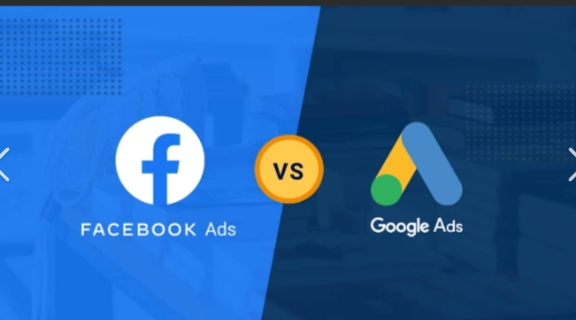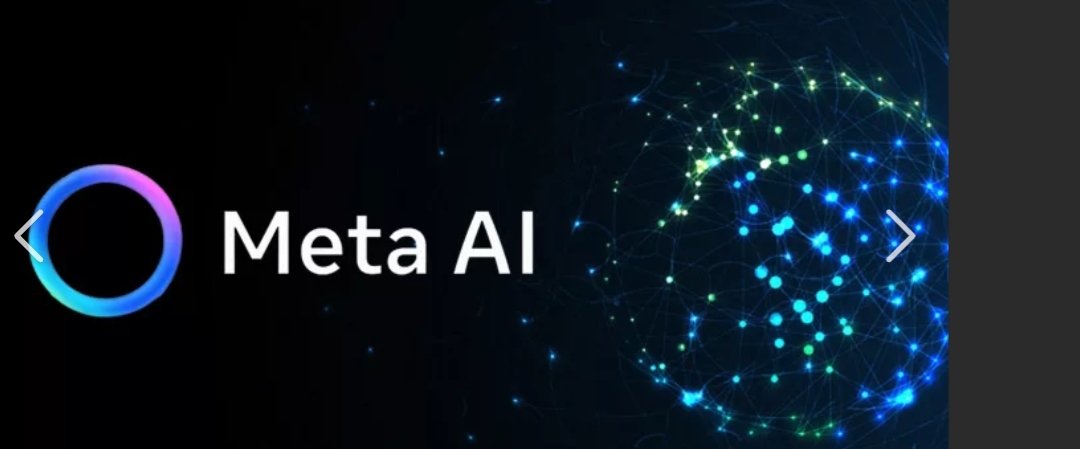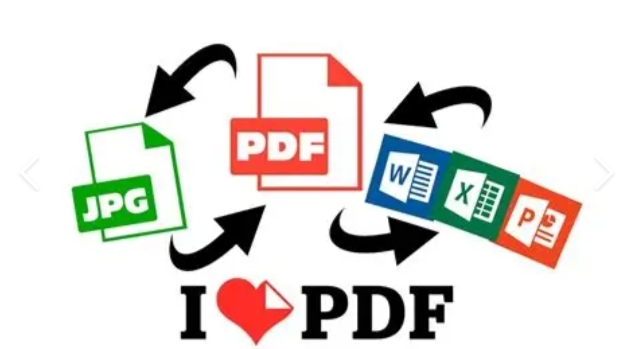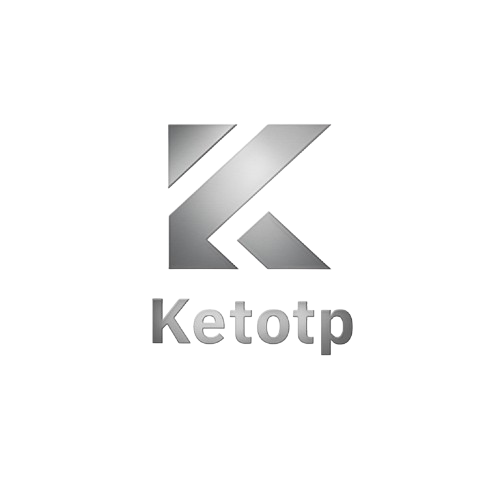How to & Tips
Facebook Ads vs Google Ads: Which One Is Best for Business Advertising?

Choosing between Facebook Ads and Google Ads can feel like choosing between coffee and energy drinks. Both work—but in very different ways.
If you’re trying to grow a business through digital advertising in 2026, you need to understand the key differences, strengths, and use cases of each platform.
This guide breaks down Facebook Ads vs Google Ads so you can decide which is best for your business advertising goals—and when to use both.
Overview: What Are Facebook Ads and Google Ads?
Facebook Ads
- Run on Meta’s ecosystem: Facebook, Instagram, Messenger, and Audience Network
- Excellent for targeted social discovery.
- Best for brand awareness, lead generation, eCommerce.
Google Ads
- Run on Google Search, YouTube, Display Network, Gmail, and more.
- Intent-based ads: triggered by user search.
- Great for direct response, service-based businesses, local search.
Facebook Ads: Strengths and Use Cases
Pros:
- Advanced audience targeting: demographics, interests, behaviors
- Visually engaging: image, video, carousel, and Reels ad formats
- Cost-effective: Lower CPCs for awareness and social engagement
- Powerful retargeting via Meta Pixel
Best For:
- eCommerce brands.
- Personal brands and creators.
- App installs and lead gen.
- Events, courses, and webinars.
Example Use Case:
A fitness coach promoting a new 30-day challenge using Facebook Reels ads and retargeting website visitors.
Google Ads: Strengths and Use Cases
Pros:
- High intent traffic: Users are actively searching for solutions
- Keyword targeting: Ads show up based on what people type
- Multiple formats: Search, YouTube, Display, Shopping, App campaigns
- Great for local SEO and maps integration
Best For:
- Local businesses (plumbers, lawyers, dentists)
- B2B SaaS and service providers
- eCommerce via Shopping Ads
- Urgent solutions (e.g., “emergency AC repair near me”)
Example Use Case:
A law firm targeting “personal injury attorney near me” on Google Search Ads for high-converting leads.
Performance Comparison (2026 Trends)
| Feature | Facebook Ads | Google Ads |
|---|---|---|
| User Intent | Low (discovery) | High (search-based) |
| CPC (Cost Per Click) | Lower on average | Higher for competitive keywords |
| CTR (Click-Through Rate) | High with visual creatives | High with intent-rich keywords |
| Best For | Awareness, retargeting | Conversions, lead capture |
| Learning Curve | Moderate | Steeper due to keyword bidding |
Which Platform Is Better For You?
Use Facebook Ads If:
- You’re targeting a specific lifestyle or demographic
- You have engaging visuals (products, videos, creatives)
- You’re building brand awareness or community
Use Google Ads If:
- You want to capture ready-to-buy or ready-to-call users
- You’re focused on measurable lead gen or sales
- Your niche has search demand
Use Both If:
- You want full-funnel coverage
- Facebook builds awareness; Google closes the deal
- You can afford to test and scale based on results
Budget Considerations
- Facebook Ads: Easier to start with smaller budgets ($5–$20/day)
- Google Ads: May require more ($20–$100+/day) depending on niche
Use Facebook for cost-effective testing, then scale high-performing offers with Google.
Retargeting Power
Both platforms excel at retargeting:
- Facebook: pixel-based, dynamic ads
- Google: remarketing lists, Display banners, YouTube overlays
Using Meta Pixel and Google Tag Manager together gives you full-funnel visibility.
Final Verdict: Facebook vs Google Ads
There’s no one-size-fits-all answer. Here’s a simple breakdown:
Want brand awareness, social proof, and viral reach? → Facebook Ads.
- Want immediate conversions, high-intent leads, and measurable ROI? → Google Ads
- Want to dominate both discovery and demand? → Use both strategically
Test small, track results, and scale what works.
Next: Want a full step-by-step campaign strategy using both platforms in sync? Stay tuned for our dual-platform ad playbook.
How to & Tips
Get MetaMask Tumbl: A Secure Way To Access the Decentralized Web

As blockchain technology continues to reshape the internet, tools like MetaMask have become essential for accessing decentralized applications (dApps), Web3 platforms, and self-custodied crypto wallets. Among various MetaMask integrations and forks, MetaMask Tumbl has emerged as a streamlined and privacy-oriented solution that appeals to users looking for fast access to decentralized environments with simplified installation options.
This guide explains how to download MetaMask Tumbl, what sets it apart, and how to use it safely and effectively.
What Is MetaMask Tumbl?
MetaMask Tumbl is a specialized version or variant of the original MetaMask wallet, typically found through alternative distribution platforms or customized builds. It is designed to retain core MetaMask features while offering modified access methods or focused use cases such as improved privacy, regional availability, or reduced interface complexity.
Key features often include:
- Full support for Ethereum and EVM- compatible networks
- Integration with Web3 applications
- Wallet backup and seed phrase security
- Custom RPC and token support
- Streamlined UX for faster onboarding
Depending on the version, Tumbl builds may cater to users in restricted regions or offer enhanced privacy layers not available in standard extensions.
Important Note on Safety and Legitimacy
Before proceeding, understand that MetaMask Tumbl is not an official release by ConsenSys, the team behind the original MetaMask. Only download from verified sources and always check user reviews, signatures, and integrity hashes. Avoid downloading any unofficial extension or app from untrusted third-party websites to protect your wallet and seed phrase from phishing or malware attacks.
Where To Download MetaMask Tumbl
The distribution method for MetaMask Tumbl may vary, but common platforms include:
- GitHub Releases: Some Tumbl versions are published by developers on open-source platforms. Always check the repository’s history and contributor legitimacy.
- Third-Party App Stores: For Android users, select Tumbl apps may be found on alternate app stores. These should be downloaded only after verifying reviews and permissions.
- Browser Plugin Stores: Certain Chromium-based browsers may list unofficial forks under names like “MetaMask Tumbl” or “Tumbl Wallet.” Only proceed if the extension has a valid publisher and verifiable source code.
To avoid security risks:
- Prefer downloading from the official MetaMask site (https://metamask.io) when in doubt
- Use a secure environment like a sandbox or test browser profile before importing real funds
- Cross-reference the Tumbl version with MetaMask community forums or GitHub discussions
How To Install MetaMask Tumbl
For Desktop Browsers
- Visit the download source and locate the correct browser extension version (e.g., Chrome, Brave, Firefox).
- Click “Add to Browser” and approve permissions for the plugin to run.
- Once installed, pin the extension for easier access.
- Launch the wallet and choose either Create New Wallet or Import Wallet.
- Secure your recovery phrase by storing it offline or in a password-protected manager.
For Android Devices
- Go to the approved APK or app store listing.
- Tap Download or Install and approve any device permissions.
- After installation, follow the on-screen steps to create or restore a wallet.
- Set up biometric security or PIN lock if available.
How To Use MetaMask Tumbl Securely
- Always verify the RPC settings before sending tokens
- Avoid connecting to suspicious dApps or links shared through unknown sources
- Enable two-factor authentication where possible through integrated browser or device settings
- Use separate wallets for testing and active funds to minimize risk
- Regularly back up your seed phrase and update your software when notified
MetaMask Tumbl vs Standard MetaMask
| Feature | MetaMask Standard | MetaMask Tumbl |
|---|---|---|
| Publisher | Official (ConsenSys) | Third-party / open-source |
| Browser Support | Chrome, Firefox, Edge | May vary by version |
| Custom Features | Standard UI and support | Region-specific or minimal UI |
| Security Updates | Regular and audited | Dependent on developer |
| Use Case | General Web3 access | Niche or custom scenarios |
Use MetaMask Tumbl only if it meets your specific needs and you understand the risks of non-official forks.
Frequently Asked Questions
Is MetaMask Tumbl safe to use?
It depends on the developer and source. Only download if the version is open-source, has community support, and is verified by developers you trust.
Can I import my MetaMask wallet into Tumbl?
Yes. As long as it supports standard BIP-39 seed phrases, you can restore your MetaMask wallet using the same recovery phrase.
Can I use MetaMask Tumbl with NFTs and DeFi apps?
Most versions support EVM-based dApps, so you can connect with platforms like OpenSea, Uniswap, or Aave if RPC and browser integration are functioning properly.
Conclusion
MetaMask Tumbl offers an alternative path to Web3 for users seeking lightweight or privacy-enhanced versions of the popular Ethereum wallet. While it provides flexibility and broader access in some scenarios, it should only be used with clear understanding and caution.
Always verify the source, follow best security practices, and test with small transactions first. Whether you are exploring dApps or managing digital assets, MetaMask Tumbl is best suited for experienced users who can manage decentralized tools responsibly.
How to & Tips
Chainlist MetaMask: How To Connect EVM Networks With Ease

As decentralized finance (DeFi), NFTs, and Web3 applications continue to grow, blockchain users often need to interact with multiple networks beyond Ethereum mainnet. Chainlist provides a reliable and streamlined way to add Ethereum-compatible (EVM) networks to your MetaMask wallet in just a few clicks.
In this guide, you will learn what Chainlist is, how it works with MetaMask, and how to use it to connect to various blockchain networks safely and efficiently.
What Is Chainlist?
Chainlist is an open-source platform that provides a curated list of Ethereum Virtual Machine (EVM) networks and their accurate RPC configuration details. It was created by the community behind Defillama and is widely trusted by developers and Web3 users.
Each listing includes:
- Network name
- Chain ID
- Native currency
- RPC URLs
- Block explorer links
Chainlist simplifies the process of manually adding new networks to MetaMask by enabling one-click integration.
What Is MetaMask?
MetaMask is a widely used cryptocurrency wallet and gateway to decentralized applications. It allows users to store, send, and receive tokens while interacting with dApps across various blockchains. By default, MetaMask is configured to work with the Ethereum mainnet. However, it supports multiple EVM- compatible networks when configured properly.
To interact with other chains such as Binance Smart Chain (BNB Chain), Avalanche, Fantom, Arbitrum, Optimism, or Polygon, users must manually input network settings — unless they use a tool like Chainlist.
Why Use Chainlist with MetaMask?
Using Chainlist to connect EVM networks with MetaMask offers several benefits:
- Saves time: No need to search for RPC URLs or verify chain IDs manually.
- Reduces risk: Avoids incorrect or malicious configurations by relying on verified data.
- Supports multiple chains: Easily add dozens of EVM networks from a single dashboard.
- Free and accessible: No account or payment required.
How To Use Chainlist with MetaMask
Step 1: Visit the Official Chainlist Website
Go to https://chainlist.org. Make sure the URL is correct to avoid phishing clones. The site is straightforward and free of advertisements.
Step 2: Connect Your MetaMask Wallet
- Click the “Connect Wallet” button in the top right corner of the homepage.
- A MetaMask pop-up will appear asking for connection approval.
- Select your wallet account and click “Next”, then “Connect”.
Once connected, Chainlist will identify which networks are already added to your MetaMask wallet.
Step 3: Search for a Blockchain Network
Use the search bar to find the network you wish to add. You can search by name (e.g., Polygon, Arbitrum, Avalanche, Celo, etc.) or by chain ID if you know it.
The search results will display the verified details for the network, including its native currency and official RPC.
Step 4: Add Network to MetaMask
- Click the “Add to MetaMask” button next to the desired network.
- MetaMask will prompt you to approve the new network configuration.
- Review the network name, RPC URL, Chain ID, symbol, and block explorer.
- Click “Approve”, then “Switch Network” if you want to immediately start using it.
Common Networks Available on Chainlist
Here are some popular EVM-compatible networks you can find on Chainlist:
| Network | Chain ID | Native Token | Use Case |
|---|---|---|---|
| Binance Smart Chain | 56 | BNB | DeFi, DEXs, GameFi |
| Polygon (Matic) | 137 | MATIC | Scalable dApps, NFTs |
| Arbitrum One | 42161 | ETH | Layer 2 scaling for Ethereum |
| Optimism | 10 | ETH | Fast, low-cost L2 solution |
| Avalanche C-Chain | 43114 | AVAX | dApps and DeFi at scale |
| Fantom Opera | 250 | FTM | High-performance smart contracts |
All of these can be added to MetaMask via Chainlist without manual input.
Is Chainlist Safe?
Chainlist is considered safe by the crypto community because:
- It is open-source and maintained by reputable developers.
- All networks listed are publicly verified.
- It does not store user data or wallet information.
However, always double-check the URL and avoid connecting your wallet to unverified or spoofed versions of the site.
Troubleshooting Tips
- If the “Add to MetaMask” button is not responsive, refresh your browser and ensure MetaMask is unlocked.
- Always verify that MetaMask is running the latest version to support all Chainlist features.
- If a network fails to load RPC data, visit the official documentation of that blockchain for an alternative RPC endpoint.
Final Thoughts
Chainlist makes managing multiple EVM-compatible networks in MetaMask simple, fast, and secure. As the Web3 ecosystem expands, interacting with various chains becomes essential. Whether you are trading tokens, minting NFTs, or exploring DeFi, having accurate and reliable access to blockchain networks is critical.
With just a few clicks, Chainlist allows you to expand your MetaMask wallet’s capabilities and streamline your experience across the multi-chain world.
How to & Tips
How To Add Meta AI On Your WhatsApp Groups

As Meta continues to integrate artificial intelligence into its suite of products, WhatsApp users can now enhance their group chats with Meta AI. This smart assistant offers real-time responses, content generation, helpful answers, and task assistance—all within the WhatsApp environment. For professionals, community managers, and tech-savvy users, this feature streamlines productivity and adds intelligent automation to group interactions.
This guide explains how to add Meta AI to your WhatsApp groups, manage its functionality, and use it effectively in 2025.
What Is Meta AI on WhatsApp?
Meta AI is an artificial intelligence chatbot developed by Meta Platforms. Built using Llama 3 technology, it can answer questions, summarize information, generate text, recommend actions, and participate in conversations within personal and group chats.
In WhatsApp groups, Meta AI can help with:
- Answering general knowledge queries
- Generating content ideas or writing drafts
- Summarizing long messages
- Providing reminders and task suggestions
- Assisting with planning or decision-making
Unlike regular bots, Meta AI functions conversationally and contextually, with direct access inside chats once activated.
Requirements to Use Meta AI on WhatsApp
Before adding Meta AI to any WhatsApp group, ensure the following:
- You are using the latest version of WhatsApp on Android or iOS
- Meta AI is available in your country or region (as of mid-2025, available in the United States and select countries)
- Your group admin privileges are enabled
- Meta AI has been activated on your individual account
Step-by-Step Guide: How To Add Meta AI to a WhatsApp Group
Step 1: Open WhatsApp and Access the Group
- Launch WhatsApp on your device
- Tap on the group chat where you want to add Meta AI
- Ensure you are an admin of the group
Step 2: Use the “@Meta AI” Command
- In the message field, type
@Meta AIand send the message - WhatsApp will Meta AI you to invite Meta AI to the group
This action triggers a request to add Meta AI as a virtual participant in the chat. It is similar to tagging a user, but instead engages the AI assistant.
Step 3: Confirm the Addition
- A pop-up will appear asking for confirmation to add Meta AI
- Tap “Add to Group”
Meta AI will now be visible as a participant and will respond when mentioned directly or when prompted in conversation.
How To Interact With Meta AI Inside WhatsApp Groups
Once added, Meta AI will remain silent unless prompted. To engage it:
- Use the command
@Meta AIfollowed by a question or instruction
Example:@Meta AI summarize the last three messages - Ask open-ended or specific questions such as:
@Meta AI give five content ideas for remote work productivity
Meta AI replies with concise, relevant answers and can often include links, summaries, or lists depending on the query.
Managing Meta AI’s Participation in Groups
Admins can manage or remove Meta AI as follows:
- Tap the group name to open Group Info
- Scroll to the participant list
- Tap on Meta AI, then choose Remove from Group if needed
It is also possible to control notifications or set limits on how often the AI can respond through future WhatsApp privacy controls (features still rolling out).
Use Cases: How Meta AI Enhances Group Communication
Meta AI in WhatsApp groups can be useful for:
- Project Coordination: Assisting in task breakdowns, quick summaries, or answering topic-related questions
- Educational Groups: Providing instant explanations or factual information
- Family or Commun/ity Planning: Helping generate checklists or ideas for events and outings
- Content Teams: Suggesting headlines, outlines, or keyword lists for content strategies
Its utility depends on how purposefully it is engaged, making it an ideal enhancement for high-functioning group chats.
Important Considerations
- Privacy: Meta AI can access recent message context when tagged but does not passively monitor all conversations
- Availability: The feature is still expanding; some regions may not have full access
- Accuracy: Meta AI provides generative answers and may not always be correct. Always verify important information
Conclusion
Meta AI adds a new layer of interactivity and assistance to WhatsApp groups. Whether for casual discussions or collaborative work, it helps participants access information, generate ideas, and streamline communication. With just a simple tag and approval, Meta AI becomes a digital group member ready to assist in real-time.
To fully benefit, ensure your WhatsApp is updated, your group settings allow bot participation, and you use Meta AI strategically for targeted queries.
As Meta continues to evolve its AI integration, WhatsApp users in 2026 have a unique opportunity to bring smart technology into everyday group chats with ease.
-

 Tech Jobs1 hour ago
Tech Jobs1 hour agoHow to Work with a Tech Recruiter and Land Your Dream Job
-

 Tech Jobs2 hours ago
Tech Jobs2 hours agoThe Best Entry-Level Tech Jobs for Non-Coders (No Experience Needed)
-

 Premium23 hours ago
Premium23 hours agoILovePDF Premium Account Cookies
-

 How to & Tips6 hours ago
How to & Tips6 hours agoChainlist MetaMask: How To Connect EVM Networks With Ease
-

 Tech Jobs2 hours ago
Tech Jobs2 hours agoTop Tech Jobs in 2026: Roles, Skills & amp; How to Get Started
-

 How to & Tips20 hours ago
How to & Tips20 hours agoHow To Send Clear HD Pictures On WhatsApp To Anyone Or Your Status
-

 Udemy Coupon Codes5 hours ago
Udemy Coupon Codes5 hours agoThe Ultimate Filmora Video Editing Course: Beginner to Pro
-

 Premium1 day ago
Premium1 day agoCoursera Plus Account Cookies
